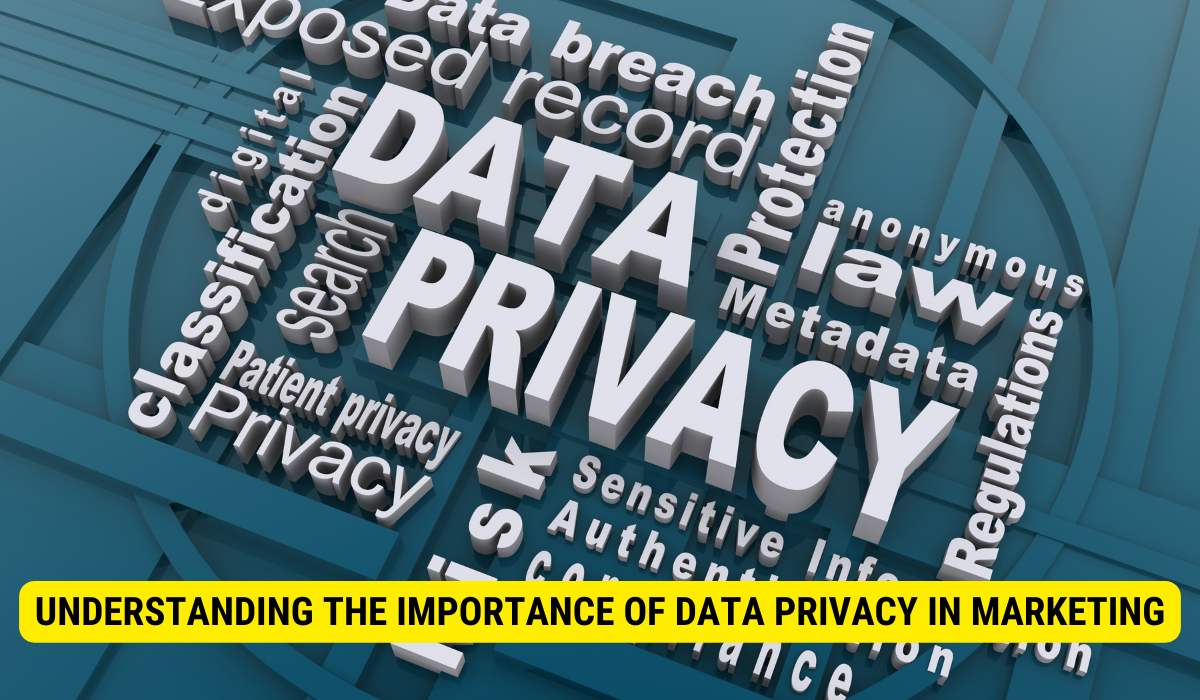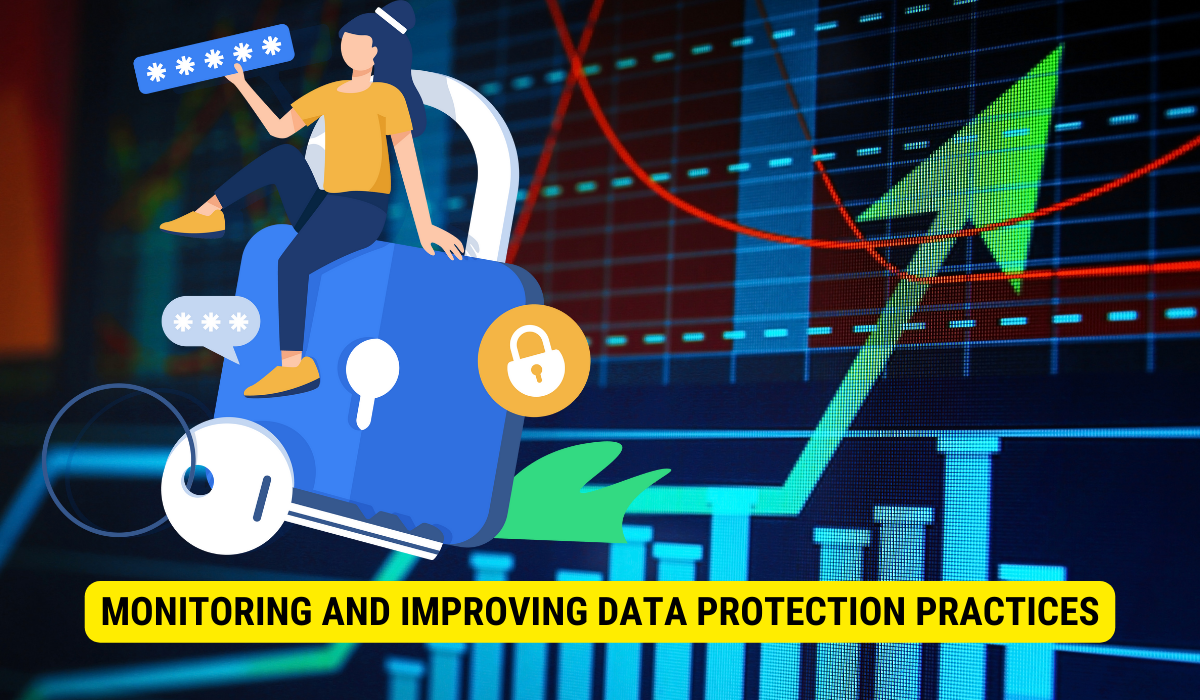Data privacy is crucial in marketing to build consumer trust, protect sensitive information, and comply with laws like GDPR. To safeguard data and privacy, businesses should create a data protection culture, select appropriate tools, use privacy-friendly marketing techniques, and regularly audit and educate their staff.
Data privacy is a critical concern in today’s digital era, particularly in the field of marketing. With the ever-increasing collection and utilization of consumer data, it is pivotal for marketers to understand the importance of protecting data and privacy. Together, we will delves into various aspects of data privacy in marketing and provides insights on safeguarding sensitive information effectively.
Understanding the Importance of Data Privacy in Marketing
The Role of Data in Modern Marketing
Data plays an indispensable role in modern marketing strategies. It enables businesses to understand their target audience better, personalize customer experiences, and optimize marketing efforts. Marketers can gain valued insights into consumer behavior, preferences, and purchasing patterns by analyzing data. This knowledge allows them to tailor marketing campaigns accordingly, enhancing customer engagement and increasing conversion rates.
Furthermore, data-driven marketing allows businesses to identify new market opportunities and stay ahead of competitors. Marketers can identify emerging trends and consumer demands by analyzing data from various sources, such as social media platforms, online surveys, and customer feedback. This information empowers businesses to develop innovative products and facilities that meet the developing needs of their customers.
Why is Privacy Crucial in Marketing?
While data has immense potential in marketing, privacy must be prioritized to foster consumer trust and comply with legal obligations. When businesses handle customer data, they are entrusted with complex data that must be protected from unauthorized access or misuse. Privacy is essential for maintaining customer confidence, establishing long-lasting relationships, and safeguarding brand reputation.
Moreover, privacy is crucial for ensuring ethical marketing practices. Businesses demonstrate their commitment to transparency and fairness by respecting consumers’ privacy rights. This, in turn, enhances their reputation and builds a positive brand image.
Additionally, privacy concerns have become increasingly prominent in recent years due to high-profile data breaches and some companies’ misuse of personal information. Consumers are now more cautious about sharing their data and expect businesses to handle it responsibly. Companies can address these concerns and build customer trust by implementing robust data privacy measures.
Furthermore, privacy regulations, such as the General Data Protection Regulation (GDPR) in the European Union, require businesses to obtain explicit consent from persons before collecting and processing their personal data. These regulations protect individuals’ privacy rights and ensure businesses handle data responsibly and lawfully.
In conclusion, information privacy is of greatest importance in marketing. It protects consumers’ sensitive information, fosters trust, enhances brand reputation, and ensures ethical marketing practices. Businesses can build strong relationships with their customers by prioritizing data privacy and sustainable growth in the digital era.
Legal Aspects of Data and Privacy in Marketing
Data Protection Laws and Regulations
As the use of customer data continues to evolve, governments worldwide have introduced data protection laws and regulations to guarantee the privacy and safety of personal information. These laws aim to strike a stability between allowing businesses to utilize customer data for marketing purposes while safeguarding individuals’ privacy rights. One such significant regulation is the General Data Protection Regulation in the European Union, which provides comprehensive guidelines for collecting, storing, and processing personal data.
The GDPR has profoundly impacted marketing practices, requiring marketers to obtain explicit consent from persons before collecting and using their personal data. This consent must be freely given, precise, informed, and definite, ensuring that individuals have full control over their data. Marketers must also provide clear and transparent information about how the data will be used and for what purposes. Failure to comply with these regulations can result in hefty fines and legal consequences.
Legal Consequences of Data Breaches
Data breaks can have severe consequences for businesses, extending beyond financial losses. In addition to damaging a company’s reputation, data breaks can lead to lawsuits and loss of customers’ trust. When customer data is compromised, individuals may suffer from identity theft, scam, or other forms of misuse, leading to significant emotional distress and financial harm.
As a result, marketers must establish robust cybersecurity measures and prioritize data protection to mitigate the risks associated with breaches. This includes implementing encryption protocols, regularly updating security systems, and conducting thorough risk assessments. By taking these proactive steps, marketers can demonstrate their commitment to safeguarding customer data and minimize the potential legal and reputational fallout from a data breach.
Furthermore, marketers should also have a comprehensive incident response plan to address potential breaches swiftly and effectively. This plan should include clear procedures for notifying affected individuals, cooperating with law enforcement agencies, and conducting thorough investigations to identify the source and extent of the breach. By responding promptly and transparently, marketers can help rebuild trust with their customers and mitigate the lawful consequences that may arise from a data breach.
In conclusion, the legal aspects of data and privacy in marketing are paramount in today’s digital landscape. Marketers must stay current with the evolving data protection laws and regulations and ensure compliance to protect their customers and their businesses. By prioritizing data security, implementing robust cybersecurity measures, and having a comprehensive incident response plan, marketers can navigate the complex legal landscape and maintain the trust of their customers.
Implementing Data Protection Strategies in Marketing
Building a Data Protection Culture
Creating a data protection culture within an organization is vital for ensuring the safe handling of customer data. This involves educating employees about privacy policies, data protection best practices, and the importance of confidentiality. By fostering a culture that values and respects privacy, businesses can reduce the likelihood of data breaches and build customer trust.
Conducting regular employee training sessions is one way to build a data protection culture. These sessions can cover topics such as the importance of data privacy, common data protection risks, and how to identify and report potential security breaches. By providing employees with the knowledge and skills to protect customer data, businesses can empower them to proactively safeguard sensitive information.
Another important aspect of building a data protection culture is establishing clear policies and procedures for handling customer data. This includes defining who has access to the data, how it should be stored and transmitted, and what steps should be taken in the event of a data breach. By setting clear guidelines, businesses can safeguard that everyone in the organization recognizes their responsibilities and follows best practices for data protection.
Choosing the Right Data Protection Tools
Utilizing appropriate data protection tools is essential for safeguarding customer information. Encryption technologies, firewalls, intrusion detection systems, and secure data storage practices are some of the tools that can help defend data from unauthorized access and cyber threats. Marketers must evaluate their data protection needs and invest in robust tools that align with their specific requirements.
When choosing data protection tools, it is important to consider factors such as the sensitivity of the data being handled, the size and complexity of the organization’s IT infrastructure, and any regulatory requirements that need to be met. For example, organizations that handle highly sensitive customer data may need to implement strong encryption measures to ensure the data remains secure in transit and at rest.
In addition to technical tools, organizations should also consider implementing data protection policies and procedures that promote good data hygiene. This includes regularly updating software and systems to patch any vulnerabilities, conducting regular security audits and risk assessments, and implementing access controls to limit who can access sensitive data. By combining technical tools with good data management practices, businesses can create a multi-layered approach to data protection.
Furthermore, organizations should stay informed about the latest trends and developments in data protection. Cyber threats are constantly evolving, and new vulnerabilities are discovered regularly. By staying updated with the latest industry news and best practices, marketers can confirm that their data protection strategies remain effective and relevant.
Ensuring Privacy in Marketing Communications
Privacy-Friendly Marketing Techniques
Marketers should embrace privacy-friendly marketing techniques that respect consumer preferences and foster trust. Permission-based marketing, where individuals explicitly opt-in to receive communication, can ensure that marketing messages reach interested recipients. Additionally, utilizing anonymized data or aggregating data to preserve individual privacy can add an extra layer of protection.
Consent Management in Marketing
Gaining and managing customer consent is crucial for maintaining data privacy in marketing communications. Businesses must clearly outline the purpose and use of collected data and obtain explicit consent from individuals. Implementing robust consent management systems allows marketers to track and manage consent preferences effectively.
Monitoring and Improving Data Protection Practices
Regular Audits for Data Protection
Periodic audits are vital to assess the effectiveness of data protection measures and identify any vulnerabilities. Conducting thorough security audits enables businesses to identify and rectify shortcomings in their data protection practices, ensuring ongoing compliance with regulations and industry standards.
Training and Education for Continuous Improvement
Continuous training and education are vital to promoting a culture of data privacy and keeping employees informed about evolving threats and best practices. Regular training sessions can equip staff with the knowledge and skills to detect potential data security risks and uphold privacy standards.
Key Takeaways
- Data privacy is integral to maintaining consumer trust and brand reputation in marketing.
- Adherence to data protection laws and regulations is necessary to avoid legal consequences.
- Building a data protection culture and selecting suitable tools are crucial for effective data protection strategies.
- Privacy-friendly marketing techniques and consent management contribute to safeguarding data privacy.
- Regular audits and continuous staff training are essential for monitoring and improving data protection practices.
FAQs
Why is data privacy important in marketing?
Data privacy is essential in marketing to establish consumer trust, protect sensitive information, comply with legal obligations, and uphold brand reputation.
What are the key legal aspects of data and privacy in marketing?
Key legal aspects include compliance with data protection laws and regulations such as the GDPR, understanding the potential consequences of data breaches, and ensuring the lawful handling of customer data.
Which tools can marketers use to protect data privacy?
Marketers can use encryption technologies, firewalls, intrusion detection systems, and secure data storage practices to protect data privacy.
How can marketers ensure privacy in marketing communications?
Marketers can ensure privacy in marketing communications by adopting permission-based marketing techniques, obtaining explicit consent, and implementing robust consent management systems.
What steps can be taken to monitor and improve data protection practices?
Regular audits can be conducted to assess data protection measures, while continuous training and education can keep employees informed and updated with evolving threats and best practices.
